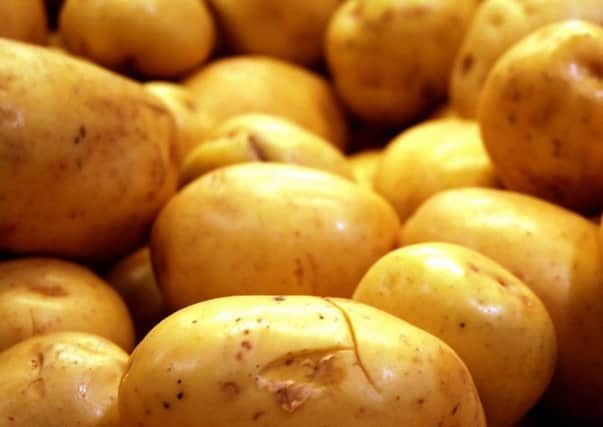Big price jump in basic food items


The price wars that see the major retailers offer discounts as they bid for greater market share is not benefitting shoppers at the tills in the way many may have thought, new figures piloted by the Office for National Statistics (ONS) show.
A cross-section of everyday items, including tea bags, bananas, potatoes and milk, went up in price by an average of eight per cent over the past year, according to ONS figures, while a kilogram of cheddar cheese increased by 15 per cent and a 500g packet of dry spaghetti or pasta by 19 per cent.
Advertisement
Hide AdAdvertisement
Hide AdThe figures cover the period June 2014 to June 2015, and have been released as part of a project by the ONS to find new ways of monitoring the cost of items in the “basket of goods” - the list of products used to calculate inflation.
The new data has been compiled using a process called “web scraping” which involves computer programme scanning supermarket websites every day at 5am, recording the prices for each of the 35 items in ONS inflation basket.
Around 6,500 prices are collected each day, which adds up to roughly 200,000 a month, a much larger number than that gathered by the traditional approach used for calculating the consumer price index (CPI) rate of inflation.
The ONS has linked falls in food and non-alcoholic drink prices to current low levels of inflation, including a CPI rate of just 0.1 per cent in July, but points out that the new data should not be directly compared with the rate of inflation due to the way the figures have been compiled, in particular the variations between prices collected every day - what is known as a “chain index” - and the average cost across a fixed period - the “unit price”.
Advertisement
Hide AdAdvertisement
Hide AdWhile the chain index for the 12 months to June suggests a rise in everyday food and non-alcoholic drink of 7.9 per cent, the unit price suggests an increase of between 1.3-1.8 per cent.
And the web scraping technique used by the ONS to monitor the chain index only involves the Tesco, Sainsbury’s and Waitrose websites being monitored.
The British Retail Consortium was not prepared to comment on the “limited” data, while a spokesman for Asda said the price of items it stocked this time last year and that it still stocks now were 0.4 per cent cheaper.